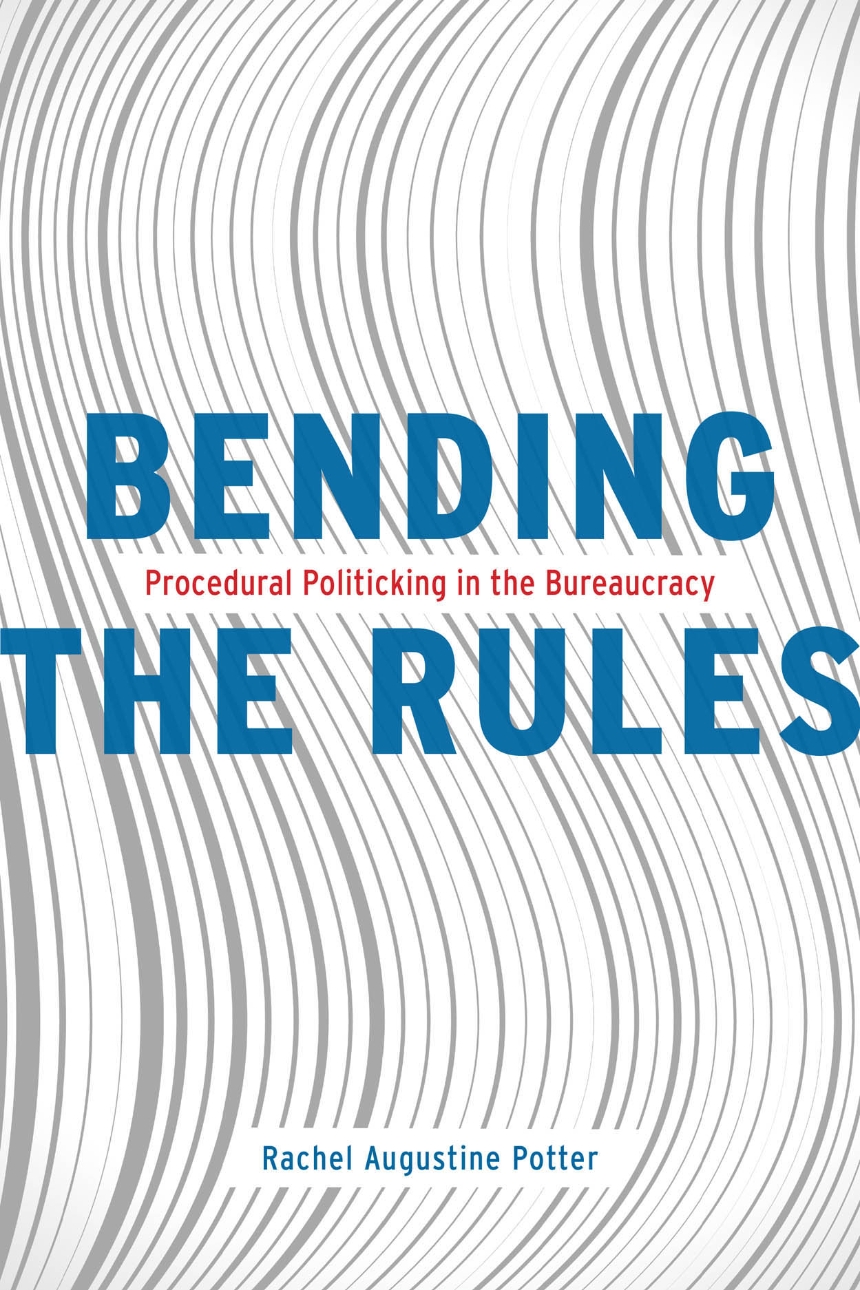Bending the Rules
Procedural Politicking in the Bureaucracy
With Bending the Rules, Rachel Augustine Potter shows that rulemaking is not the rote administrative activity it is commonly imagined to be but rather an intensely political activity in its own right. Because rulemaking occurs in a separation of powers system, bureaucrats are not free to implement their preferred policies unimpeded: the president, Congress, and the courts can all get involved in the process, often at the bidding of affected interest groups. However, rather than capitulating to demands, bureaucrats routinely employ “procedural politicking,” using their deep knowledge of the process to strategically insulate their proposals from political scrutiny and interference. Tracing the rulemaking process from when an agency first begins working on a rule to when it completes that regulatory action, Potter shows how bureaucrats use procedures to resist interference from Congress, the President, and the courts at each stage of the process. This exercise reveals that unelected bureaucrats wield considerable influence over the direction of public policy in the United States.
256 pages | 24 line drawings, 22 tables | 6 x 9 | © 2019
Law and Legal Studies: Law and Society
Political Science: American Government and Politics
Reviews
Table of Contents
List of Abbreviations
1 The Power of Procedure
2 The Nuts and Bolts of Notice-and-Comment
3 Rulemaking as a Strategic Enterprise
4 Writing as a Tool
5 Consultation as a Tool
6 Timing as a Tool
7 The Case of Menu Labeling
8 Procedural Politicking in Perspective
Data Appendix
References
Index
Awards
American Political Science Association: APSA-Herbert A. Simon Book Award
Won
APSA-IPSA: APSA-IPSA Theodore J. Lowi First Book Award
Won
National Academy of Public Administration: Louis Brownlow Book Award
Won
Presidents and Executive Politics section, American Political Science Association: Richard E. Neustadt Award
Won
